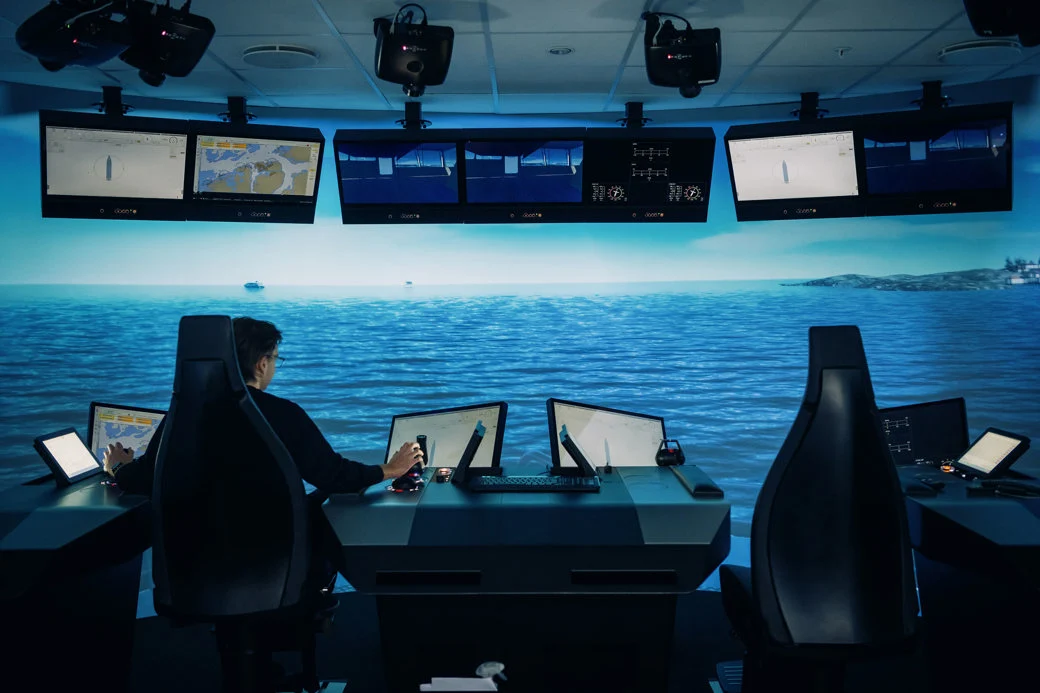
The marine industry has come a long way over the years. Ships today are faster, safer and smarter than ever before. One of the key technologies driving this transformation is marine automation. Whether it’s a cargo vessel, a cruise ship or an offshore platform, automation systems help manage everything from navigation to engine control, which in turn make marine operations more efficient and reliable.
If you are new to the marine world or simply curious about how modern ships work, this beginner’s guide will help you understand what marine automation is, how it works, and why it matters, especially in a fast-growing maritime hub like Dubai.
Introduction to Marine Automation
Marine automation refers to the use of technology and computerized systems to monitor, control and manage the various processes on a ship or offshore vessel. Instead of doing everything manually, operators rely on automation systems in order to ensure smoother operations, increased safety and reduced human error.
In simple words, marine automation helps make ships smarter, from adjusting engine settings based on fuel needs to detecting faults before they become serious problems.
Why Marine Automation Matters in Dubai
Dubai is one of the most active maritime centers in the world. With its busy ports, luxury yachts, offshore platforms and advanced shipbuilding activities, the demand for modern and reliable marine systems is high.
Marine automation offers several benefits for Dubai-based operations:
- Saves fuel and operational costs
- Enhances vessel safety and performance
- Reduces manpower and human error
- Meets global marine safety standards
- Supports smart city and green shipping goals
Whether you are running a commercial ship, a private yacht or an offshore unit in the Arabian Gulf, automation is a smart investment.
Key Areas of Marine Automation
Marine automation covers a wide range of systems and functions. Here are the major areas where automation plays an important role in modern vessels:
1. Engine Room Automation
Engine systems are monitored and controlled using sensors and software that track fuel usage, temperature, pressure and oil levels. Alerts are triggered if any readings go beyond safe limits.
2. Navigation and Bridge Systems
Automation helps in monitoring GPS data, radar, weather forecasts and autopilot systems. It supports the crew with better decision-making and reduces the chances of accidents.
3. Power Management
This system ensures a stable power supply throughout the vessel by controlling generators, batteries and power distribution. It also helps in saving fuel and reducing emissions.
4. Cargo and Ballast Automation
Automated systems manage the loading and unloading of cargo, which helps to maintain the ship balance through ballast water control, and monitor tank levels.
5. Alarm and Monitoring Systems
Centralized alarm systems continuously check every part of the ship and notify the crew about faults or safety risks before they escalate.
6. HVAC and Lighting Controls
Marine automation also includes smart control of heating, ventilation, air conditioning and lighting in order to create a comfortable and energy-efficient onboard environment.
Benefits of Marine Automation
Modern vessels are complex, and automation systems simplify operations while increasing safety and performance. Here’s a breakdown of the key benefits:
Improved Safety
Automated alarms and real-time monitoring reduce risks and ensure timely action before any failure or accident.
Fuel and Energy Efficiency
Automation allows smart energy management, which in turn helps to reduce fuel consumption and lower emissions, which is important for eco-friendly operations in the UAE.
Reduced Human Error
Machines can perform repetitive tasks more accurately than humans. Automation minimizes errors caused by fatigue or inexperience.
Lower Operating Costs
By automating key processes, ship owners can reduce crew size, save on fuel and cut down on maintenance expenses.
Easy Maintenance
Advanced automation systems come with predictive maintenance features, which alert operators before a part fails. This helps in avoiding costly downtime.
Better Data and Decision-Making
Automation systems collect valuable data that helps ship operators make informed decisions to improve performance and plan maintenance.
How Marine Automation Works
Marine automation systems rely on sensors, controllers and software platforms to gather data and perform tasks. Here’s a basic flow:
- Sensors collect data from engines, fuel tanks, temperature controls and other equipment.
- Controllers process the data and send commands to systems based on pre-set rules or conditions.
- Display panels or control rooms show real-time data to the ship’s crew.
- Alerts and alarms are triggered if any system behaves abnormally.
These systems can work independently (local control) or be part of a central system (integrated automation system), depending on the size and type of vessel.
Marine Automation in Yachts and Offshore Platforms
Marine automation is not limited to large cargo ships. In Dubai, many luxury yachts and offshore oil rigs also benefit from automation.
For Yachts:
- Navigation and autopilot systems make cruising easier.
- Smart lighting, AC and entertainment controls offer comfort.
- Security systems improve safety while anchored or at sea.
For Offshore Platforms:
- Drilling equipment is managed automatically for accuracy and safety.
- Crew cabins are equipped with automated systems for HVAC and water management.
- Critical systems are monitored continuously to avoid hazards.
Choosing the Right Marine Automation Partner
Installing marine automation is not a one-size-fits-all job. You need a trusted and experienced company that understands marine systems and can deliver customized solutions.
Here’s what to look for in a marine automation service provider:
- Experience with different vessel types (ships, yachts, rigs)
- Knowledge of global and UAE marine regulations
- High-quality equipment and technology partners
- Local support for maintenance and upgrades
- Customized automation plans based on your operations
Trends in Marine Automation
The world of marine automation is evolving fast. Here are some of the trending developments:
Remote Monitoring
Ship operators can now monitor and manage ship systems from shore using satellite connectivity and cloud-based dashboards.
AI and Machine Learning
Artificial Intelligence helps in smarter decision-making by learning patterns and predicting equipment issues.
Cybersecurity in Automation
As ships become smarter, they are also more vulnerable to cyber threats. Marine automation systems now include strong cybersecurity measures.
Integration with IoT (Internet of Things)
Sensors and devices on ships are connected to form an integrated system that shares data in real time for better performance.
Green Shipping Goals
Dubai is pushing for sustainable marine operations. Automation helps reduce carbon emissions, cut down fuel waste and meet environmental standards.
Conclusion
In a nutshell, marine automation is no longer a luxury but it’s a necessity in the modern maritime world. From boosting safety and efficiency to supporting eco-friendly shipping practices, automation offers clear advantages for all types of vessels.
In Dubai’s dynamic marine industry, where innovation and sustainability are priorities, adopting automation is a smart step forward. Whether you operate a commercial ship, private yacht or offshore unit, marine automation ensures smoother, safer and smarter operations.
If you are ready to upgrade your marine systems or explore automation options for your vessel, V-Tech Group is here to support you. With years of experience in marine engineering and automation solutions, we deliver customized systems that meet the demands of today’s marine environment in Dubai and beyond.



